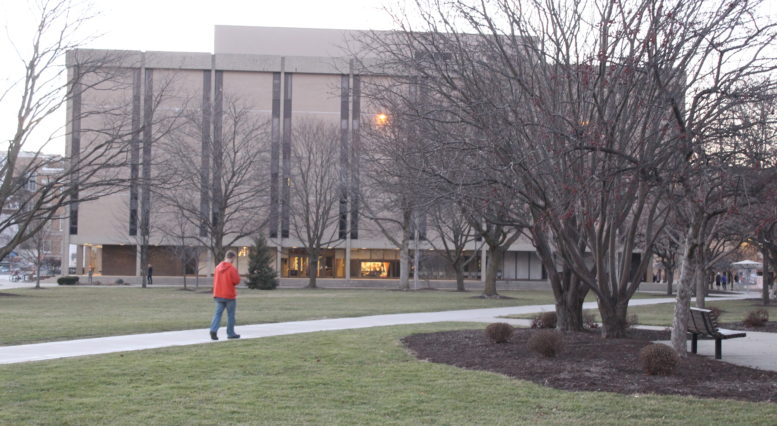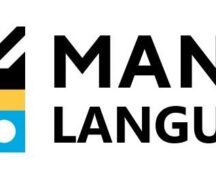By DAVID DUPONT
BG Independent News
Faculty members made their displeasure at the university’s decision to stop offering American Sign Language courses during Tuesday’s Faculty Senate meeting.
More than 21,000 people have signed a change.org petition urging Bowling Green State University to retain the program. The Undergraduate Student Government has also passed a resolution to that effect. And though it wasn’t on the agenda, it came to the forefront during the senate meeting.
The decision was made in spring, though the communication of the news was muddled. The College of Education and Human Development backtracked a bit and retained the qualified rank faculty member who taught the ASL III and IV courses for another year, so the dozen students who had begun the four-course sequence could complete it.
This Provost Joe Whitehead said was purely a financial decision. The College of Education and Human Development has particular financial problems that need to be addressed. “This is one of those tough decisions,” he said.
Christopher Frey, who chairs the Faculty Senate, introduced the subject by reiterating ASL’s history at BGSU. American Sign Language was first taught as a non-credit course in the psychology department in 1969. It was offered for credit a couple years later. ASL moved to the College of Education and Human Development in 1997. By 2007, BGSU had the most extensive ASL program in the state, offering four courses. A minor was approved in 2020.
Frey said the faculty has questioned given the university’s focus on promoting diversity and belonging why this program was not protected.
He also noted that as reported to the trustees in December, the budget is rebounding, so funds should be available to keep the program.
About 400 students are enrolled in the ASL courses, making it the second or third most popular language taught at BGSU, Frey said.
Whitehead said that half the students enrolled were students from Arts and Sciences, most seeking to complete the college’s foreign language requirement. Another quarter were from the College of Health and Human Services, which offers a Bachelor of Science in Communication Science and Disorders.
Only 15 percent were students in the College of Education and Human Development.
This highlights, he said, the reason for the college to end the courses, and instead focus on courses that its students need to complete their degrees.
Only 10 or so students had expressed interest in the ASL minor approved last year.
While ASL I- IV accounts for 12 credits, a total of 21 are needed for a minor. “So, there’s a need to have additional credit hours.”
Ending the ASL sequence is being done, Whitehead said, in a way to allow those students who have started the sequence to complete it.
Whitehead said the university continues to look at opportunities for BGSU students to continue studying ASL. This could involve partnerships and remote instruction, building lessons learned during the pandemic.
The cut does have an impact on the campus and greater community, he said. “We will continue working to move things forward to minimize the impact of this decision.”
Allen Rogel, from Physics and Astronomy, said that there is a national need for ASL translators, and providing the courses would fit with the university’s desire to train people for existing needs in the economy.
Whitehead noted that ASL courses do not lead to certification as a translator.
Still such training would be part of the background needed, said Bill Albertini, of the English Department.
Rogel also questioned why the university would set up a program in which the tuition dollars were going to another institution.
Whitehead insisted ASL would not be outsourced. The current action was taken to insure that students had a way to complete the ASL sequence. What replaces it has yet to be determined and is part of a larger conversation.
Part of that is whether foreign language requirements should remain. More and more high schools, especially those in urban areas that have large percentages of students of color no longer can afford to offer foreign languages, he said.
The language requirement poses another obstacle to graduating for those students.
Whitehead said another option would be to move the program, in whatever form, to another college, either Arts and Sciences or Health and Human Services.
Senators promised to continue to fight to maintain ASL instruction on campus.
It is expected that a resolution on the issue will be placed on the senate’s March agenda.
Frey also said he would work to have an ASL interpreter for the next meeting. This was in response to comments, including one in the chat box by Kyle Parke, an ASL instructor who is deaf. He said while he appreciated his colleagues support, he wished there was an interpreter so he could fully participate in the discussion.





